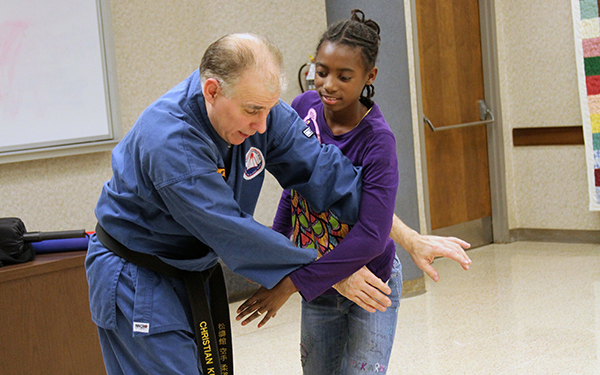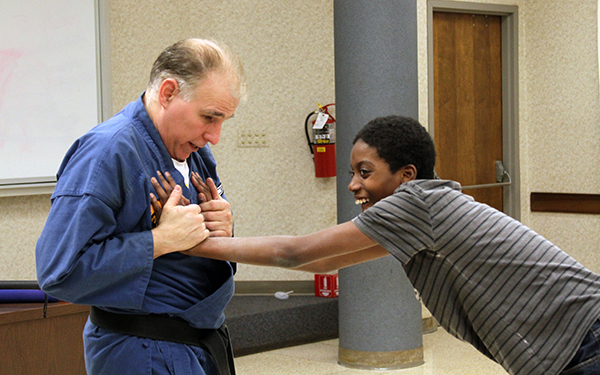Martial arts program makes striking difference for kids with special needs

Brenda Carneal was feeling overwhelmed: The Barberton resident's daughter had been diagnosed with bipolar disorder, and her youngest son, Nick, was struggling with autism. As a result, Brenda was getting lost in the never-ending stream of meetings with schools, doctors and service agencies.
"You feel so alone when you have a child with a mental health diagnosis," she said. "You get so overwhelmed by what's going on in your life that you can't take it all in."
That's when she got a call from Terrie Casenhiser, a parent advocate with the PEERS Project. Casenhiser invited her to attend a PEERS meeting, where she could talk with other parents of children with special needs and have a safe place to share her emotions.
"It was huge for me to find out there were other people in the world who were feeling what I was feeling," Brenda said. "Just to sit beside someone who understood – that was so important to me."
Dozens of parents like Brenda have found comfort in the PEERS Project. Offered by Mental Health America of Summit County, the PEERS Project provides support, education and advocacy services for families of children with severe behavioral disorders ranging from autism to post-traumatic stress disorder.
"Our goal is to empower them," Casenhiser said. "They come in beaten down by schools, society, even family members. But they leave feeling like they know the right words to say to get their child's needs met. It's awesome to see."
Equally important, the PEERS Project is the only support group of its kind that offers a simultaneous program for the children of these families. While parents attend their own meeting, their children participate in Skills for Living classes, which are designed to reinforce the coping techniques they've learned from their therapists or in school.
Thanks to a Millennium Fund grant, the kids will get to practice those skills in a martial arts class. Taught by Sensei Christian Kuehm, the class emphasizes personal discipline and self-esteem, both of which are critical skills for children with emotional or behavioral issues.

"Martial arts gives them something to focus on instead of focusing on what they can't do," Kuehm said. "In this class, we try to avoid the word 'can't.' We tell them, 'It may be difficult at first, but you can.'"
That message is extremely important for these kids and their parents, said Casenhiser, because so often all they hear is, "Your child did this wrong." With the PEERS Project, they get to go home feeling like they succeeded.
"When you have a child with a disability, you can't just show up for ballet or soccer," Casenhiser said. "This is a place they can go where they know their child will be successful."
For Syrah Stephens, learning martial arts has been the highlight of the program. Stephens' mother, Alexis Shuler, said the class has made a big difference in the way her daughter manages her attention disorder.
"She learns how to focus and have self-control," Shuler said. "It gives her a chance to practice that in a fun way."
Most importantly, Syrah is able to translate those skills into her daily life.
"I'll tell her, 'Stop and think – just like you do at martial arts,'" Shuler said. "It helps her concentrate on one thing at a time. She loves it."
